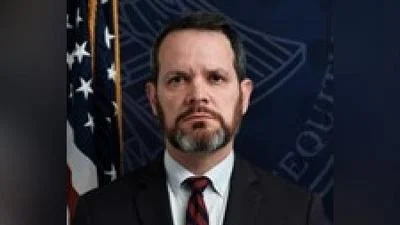Governor Gretchen Whitmer | Gretchen Whitmer Official Photo
Governor Gretchen Whitmer | Gretchen Whitmer Official Photo
LANSING, Mich.—Governor Gretchen Whitmer has signed bipartisan bills to help Michigan communities foster clean energy growth, create good-paying, high-skill clean energy jobs, and lower energy costs for Michiganders by removing the sunset on the Michigan Energy Assistance Program.
“We are taking a step forward on our MI Healthy Climate Plan goals, lowering energy costs for Michiganders, and creating good-paying jobs across our state,” said Governor Whitmer. “With these bills, we will help more communities unleash innovative clean energy resources, provide vital energy assistance to help families stay warm in winter, and create good-paying, high-skilled jobs right here in Michigan. I look forward to working with the legislature this fall to cement Michigan as a national leader on climate and clean energy jobs. Let’s get it done.”
"We thank the Governor for signing into law these critical bills that will help transition Michigan to clean, affordable energy,” said Charlotte Jameson, Chief Policy Officer with the Michigan Environmental Council. “These policies take the first steps towards combating climate change and saving Michiganders money on their utility bills. But more must be done. Now is the time to get to work to on legislation that fully adopts the Governor's MI Healthy Climate Plan.”
House Bills 4317 and 4318 allow local governments and commercial solar energy developments to opt into payments in lieu of taxes (PILT). Solar PILT will cut red tape, cut down on costly, time-consuming litigation between local governments and commercial solar energy developments and clear the way for more solar energy in Michigan.
“We live in a state with a few big cities and many, many local communities,” said state Representative Curt VanderWall (R-Ludington), sponsor of HB 4317. “Too often those smaller towns and suburbs get overlooked. I am very pleased to sponsor this legislation and make sure they get the same opportunities as anyone else. There’s no reason we can’t treat our smaller communities with as much attention and care as our larger cities. Now, we can take a step forward towards a more affordable, brighter future for the entire state of Michigan.”
“Michigan is becoming a powerhouse for technological advances. With the governor’s signature, my bill becomes law and continues our state’s efforts toward becoming carbon-neutral,” said state Representative Cynthia Neeley (D-Flint), sponsor of HB 4318. “This legislation will help solar districts by easing portions of their operational tax burden, while also ensuring they are still paying a reasonable share of their dues. I am proud to have introduced HB 4318, and I'm glad it will move Michigan toward the best environmental practices with the encouragement of responsible tax legislation.”
“These new laws roll out the welcome mat for more clean, renewable energy development in communities throughout Michigan,” said Laura Sherman, president of the Michigan Energy Innovation Business Council. “Commercial Property Assessed Clean Energy (C-PACE) is a proven program that has already brought more than $233 million in investment to our state and will be able to provide business owners even more opportunities to utilize cost-effective financing for energy efficiency and renewable energy upgrades with the new law. With the solar payment-in-lieu-of-taxes (PILT) legislation signed into law, Michigan communities can better partner on projects with Michigan advanced energy businesses, providing more tax revenue certainty that supports local services – such as police, fire and libraries – while driving innovation.”
“Local clean energy and energy efficiency projects help families and small businesses lower costs and reduce pollution – all while creating good-paying jobs. Thanks to this legislation, more Michiganders will be able to take advantage of these clean energy projects and local communities will be provided a stable source of revenue,” said Lisa Wozniak, executive director of the Michigan League of Conservation Voters. “We applaud the Governor and members of the Legislature for helping lower energy costs and making clean energy more accessible for all. Now it’s time for the Legislature to pass 100% clean energy legislation to continue Michigan’s clean energy boom and take action on climate change."
Senate Bills 302 and 303 expand the eligibility of properties and projects for Commercial Property Assessed Clean Energy (C-PACE) financing. C-PACE is a program that allows local government units to work with building owners and contractors on energy efficient and climate resilient projects and has led to over $332 million in energy savings for Michigan businesses over the last decade. Local governments use C-PACE to promote energy efficiency and protect against environmental hazards like contaminants, floods, or severe weather.
“I’m so proud to see this legislation pass into law. SB 302 will expand Michigan’s C-PACE market and increase the scope of projects that are able to access this important source of funding,” said state Senator Darrin Camilleri (D-Trenton), sponsor of SB 302. “By increasing energy efficiency, we can increase business investment, reduce demand on our energy grid, and lower our carbon emissions all at the same time.”
“Expanding C-PACE will help more Michigan businesses make investments to lower their costs and carbon footprint,” said state Senator Kristen McDonald Rivet (D-Bay City), sponsor of SB 303. “This is a smart policy for our climate, Michigan businesses, and jobs.”
Senate Bill 288 removes the sunset on the Michigan Energy Assistance Program (MEAP), lowering energy costs for Michiganders. MEAP helps low-income households with energy assistance for electricity, natural gas, and heating bills. The program also helps participants become more energy efficient.
“The extension of the MEAP program will continue to benefit thousands of low-income residents, and is an important piece of the conversation surrounding how best to ensure we’re creating an equitable, sustainable, and reliable energy future for all,” said state Senator Sam Singh (D-East Lansing), sponsor of SB 288.
Senate Bill 14 repeals the requirement that state regulations be no stricter than federal rules. It strengthens Michigan’s ability to protect natural resources, respond to environmental crises, clean up contaminants, and ensure clean air and water for Michiganders.
“Governor Whitmer recognizes what we all know to be true—that Michigan, like all states, has unique needs and should have the ability to set its own rules to protect the environment and public health,” said state Senator Sean McCann (D-Kalamazoo), sponsor of SB 14. “Federal standards should be the floor, not the ceiling. Michigan will once again have the ability to take swift, decisive action based on the best science available to protect our precious natural resources.”
Clean Energy and Natural Resources
Governor Whitmer is committed to lowering energy costs for Michiganders, growing the clean energy economy, and building a state where every Michigander can access clean air and water. She launched the MI Healthy Climate Plan to put Michigan on a track to achieve 100% carbon neutrality by 2050 and worked across the aisle to create bipartisan economic development tools that have brought home billions of dollars in investments and created tens of thousands of clean energy jobs, spurring growth and innovation. Thanks to her investments, Michigan is:
- Top 3 state for sustainable development
- Expected to “dominate” EV battery manufacturing
- Home to nearly 120,000 Michiganders working in clean energy and projected to create 167,000 more clean energy jobs
- A top two state nationwide for clean energy investments, with a combined $20 billion of investment since August 2022
- Nearly $600 million in investments for water infrastructure across Michigan, helping communities replace lead service lines, rebuild sewers, and more.
- $125 million to help schools purchase electric school buses.
- $50 million to improve air and water quality in schools.
- $43 million to leverage federal funding to boost grid resiliency and reduce outages.
- $30 million for the Renewable Ready Communities program to incentivize renewable energy projects in communities across Michigan.
- $25 million for home repairs and upgrades that enable clean energy.
- $3 million to help implement the MI Healthy Climate Plan.






 Alerts Sign-up
Alerts Sign-up